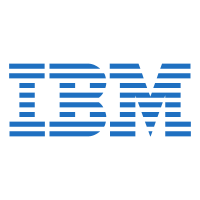Building the future: Shyam Purkayastha’s journey from a consultant to a champion developer
Today, intelligent technology has seeped its way into our home and work lives in ways we don’t even realise. And while the machines haven’t taken over yet, with the advent of emerging technologies like AI, Blockchain and IoT, it won’t be long before they become as indispensable in our daily lives as our smartphones.
In all the talk about the awesomeness of such technology, we often overlook the most important bit - the genius minds of the developers who work with them and build products using them. One such mind is that of Shyam Purakayastha, a developer. His passion and development skills saw him being selected as one of the IBMChampion for Cloud. The main aim of the programme is to recognise innovative thought leaders who demonstrate both expertise in and extraordinary support and advocacy for IBM technologies, communities, and solutions. And Shyam fit the bill perfectly.
Growing up in an Armed Forces family (his father served in the Indian Air Force) meant frequent transfers to a new location every few years. He studied in various schools across several cities, but grew up mainly in and around Delhi and Gujarat. Shyam recalls, “I did my schooling in Baroda and then moved to Maharashtra to finish my engineering. After that Bangalore happened, and I’ve stuck around more or less, since.”
The IBMChampion for Cloud worked as a freelance consultant for a couple of years before he started out on his own. Currently a startup evangelist, and doting father to a four-year-old girl, Shyam has two startups to his credit. “One works in the product space, trying to build products around emerging technologies like IoT and AI. The other is more of a consulting company, where I try to help customers build concepts and prototypes.to validate the use cases around these technologies,” he says with a hint of pride.
Shyam got the knack of programming back when he was in college. “But even though I liked it, I was initially skeptical about it. Later on, however, I moved on to a developer role,” he says. “In mid-2015, IBM had just launched Bluemix, their own cloud platform. I was consulting with a couple of startups in the US and they were listed as the third party services within the IBM cloud ecosystem. That gave me a chance to combine both their tools and build many prototypes and model applications. I’ve also been contributing to the IBM cloud blogs, meetups and other forums,” he explains.
Most of Shyam’s work is dependent on the use of its well-known AI platform Watson. He believes it’s an all-in-one kind of a deal. “Whenever you’re building an intelligent application, you have to rely on your sensory outputs, your vision, speech and writing. So when you command a machine with your voice, it’ll convert your voice to a command - one single zero that the machine can understand. That’s what Watson does for you. It converts the voice into a command that the machine can understand. The building blocks are already available with Watson, so you just start building your applications right away,” Shyam says.

According to Shyam, the developer ecosystem in India still has long way to go before it catches up with the rest of the world. “Compared to the US, our developer system is definitely lukewarm. In the US, there are developer evangelists whose job is to evangelise a developer tool or a product. That kind of adoption in India is obviously missing, but it is catching up and will take a few years to be at that level,” he explains.
Another problem that he believes Indian developers need to focus on is the novelty of the product. “Everybody wants to do the same thing. If a youngster from college is building something with IoT, the first thing he opts for is automation, a field that everyone has worked on. Why not try out something out-of-the-box instead? It’s important to find some novelty or some uniqueness when using a technology. Then you can go ahead and build the prototype,” he elaborates.
Ask him which sectors will be most impacted by intelligent technology, and he responds, “The automation sector for sure. There are a number of small and medium enterprises (SMEs) that employ manual labour rather than depending on machines. The social impact is that people will lose jobs. But again, there’s a huge scope for getting rid of human error and improving the quality of the product and the process.” He believes even smart cities will become a way of life. “There will be intelligent devices placed in your traffic signals and parking lots, improving the life of citizens,” he adds.
According to him, quantum computers and digital twinning are the future of technology. “I do not know much about quantum computers, but I do know that AI, IoT and Blockchain will require high computing power that the current generation of computers do not have. So better computers are yet to come. Digital twinning, on the other hand, is already being used in the manufacturing domain with machines. All the machines have digital replicas on the cloud. So I’m sure we’ll have some interesting use cases of that too,” he explains.
His current read is Alec Ross’ ‘The Industries of the Future’, and Shyam hopes that the world will be shaped by these technologies in the coming years. What about India? “The mass adoption of these technologies is yet to happen in India. We didn’t trust EBay and Amazon when internet arrived 20 years ago. Similarly, we are not yet ready to trust machines. This barrier will come down in the next few years and mass market adoption of AI and Blockchain will then take place,” he signs off.








